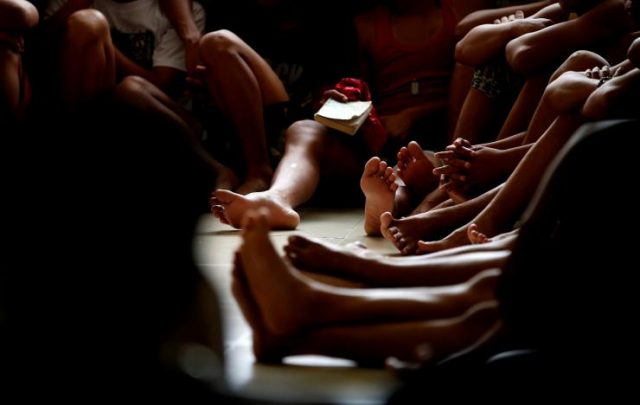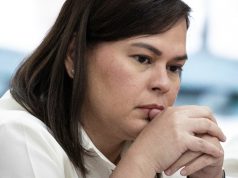MANILA, Philippines — Bowing to stiff opposition, the authors of a bill that would lower the age of criminal liability to nine years old have backed down, opting to strengthen the Juvenile Welfare Act of 2006 instead and retain the current age of 15.
The substitute bill was approved on Tuesday by a sub-committee of the House of Representatives’ justice committee.
Kabayan party-list representative Ron Salo called the substitute bill a more acceptable version, saying it took into consideration all views, including the opposition of various groups to lowering the age of criminal responsibility.
“What we have tried to do is to remove the stigma of being criminal, but all the interventions are there and being strengthened further,” Deputy Speaker Pia Cayetano said.
The bill will give the state the right to “take responsibility” of a child in conflict with the law if the parents cannot do so.
Bayan Muna party-list Representative Carlos Zarate and Antipolo Representative Romeo Acop raised the same concern about funding and capacitating the agencies tasked to implement the measure.
“The weakness of the (Senator Francis) Pangilinan law (author of the Juvenile Justice Welfare Act), is the funding. The current bill proposes a number of measures to be undertaken by national agencies, but how much appropriation will be given,” Zarate said.
“Kung walang pondo, siguradong walang mangyayari diyan (Without funding, nothing will happen),” added Zarate, who abstained during the voting.
Acop said there was nothing in the bill that says how the Department of Social Welfare and Development (DSWD) would be strengthened given that it bears the burden of rehabilitating children in conflict with the law.
Below are among the pertinent provisions of the proposed “Act expanding the scope of the Juvenile Justice and Welfare System and strengthening the social reintegration programs for children in conflict with the law, amending for the purpose Republic Act. No. 9344, as amended, otherwise known as the Juvenile Justice and Welfare Act of 2006”:
- Establishment of Bahay Pag-asa, a 24-hour child-caring institution to be established, funded and managed by the Department of Social Welfare and Development, which will provide short-tern residential care for children in conflict with the law, who are nine years of age to 17 years old who are committed for rehabilitation or awaiting court disposition.
- If the child taken into custody is 15 years old or below, the child will be turned over to the local social welfare development officer and shall immediately inform the child’s parents or guardian, or the child’s nearest relative that the child has been taken into custody.
- The local social welfare officer will assess if the child needs to be placed under foster care or in a youth care facility or Bahay Pag-asa.
- Any person who induces or coerces a child to commit a crime shall be punished by reclusion temporal if the crime committed is punishable by imprisonment of six years or less, and by reclusion perpetua if the crime committed is punishable by imprisonment of more than six years.
- Parents of children who commit serious crimes or who are repeat offenders shall undergo mandatory intervention programs such as parenting seminars and counseling. Failure to undergo this process shall be a ground for imprisonment for at least 30 days but not more than six months.
- The court shall impose a penalty two degrees lower than that provided for in law for crimes committed by children in conflict with the law. In cases where the law provides for a fixed period of imprisonment, the period shall be reduced in half. For crimes punishable by life imprisonment, the penalty to be imposed shall be imprisonment of up to 12 years.
- If the child in conflict with the law reaches 18 years of age while under suspended sentence, the court shall determine whether to discharge the child, to order execution of sentence, or to extend the suspended sentence until the child reaches 25 years.
- The DSWD shall be responsible for building, funding and operating Bahay Pag-asa in provinces and cities to be identified by the Juvenile Justice and Welfare Council.
- All Bahay Pag-asa that are currently operated and maintained by local government units shall continue to be operated, maintained and funded by the respective LGUs.
- The Bureau of Corrections shall establish at least two agricultural camps each in Luzon, Visayas and Mindanao. The Technical Education and Skills Development Authority shall also establish at least two training centers each in Luzon, Visayas and Mindanao.
READ THE SUBSTITUTE BILL:
[pdf-embedder url=”http://media.interaksyon.com/wp-content/uploads/2017/05/MACR-Subbill.pdf” title=”MACR Subbill”]










